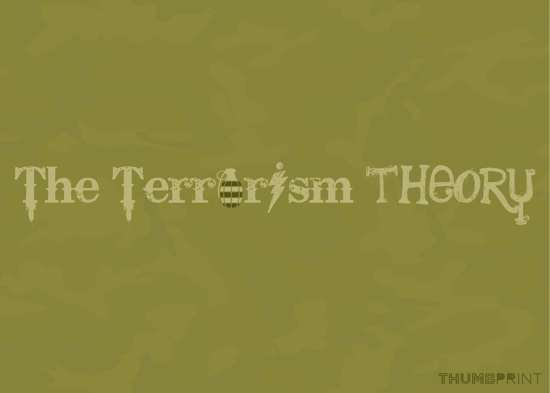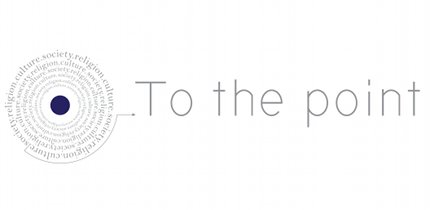Article in brief: the author debates the relation between terrorism & religion, and proves with research that terrorism is actually driven from political occupation or social degradation rather than the religion of Islam itself.

I’m currently a teacher’s assistant (TA) at New York University in New York City to one of my favorite professors, Professor Mary Beth Altier. The class I co-teach is called “Transnational Terrorism”, and there’s been a large misconception by students that terrorism is related in any way to religion, specifically Islam since 9/11. Under the PATRIOT act that was signed by George W. Bush in 2001, the US government was able to investigate and survey potential terrorists without court orders. This act opened the door for a racial profiling of Muslims and Arabs around the world. In class, we constantly challenge the students regarding the relationship between terrorism and religion. In fact, according to a series of detailed and intensive research by prominent US political scientists, terrorism has little to do with religion and rather is mostly of political motive.
The prominent American political scientist Robert Pape argues that terrorism is primarily due to foreign occupation and not due to a specific ethnicity, culture or religion. Pape has compiled evidence to suggest that suicide terrorism is in fact a secular tactic rather than a religious one, which forms a broader goal to remove occupying forces from an area perceived as the perpetrators homeland. Pape’s publication “Dying to Win” analyzes 315 terrorist attacks from 1980 to 2003 and concluded that the attacks were explained by individual motives and beliefs, and discovered little correlation between religion to terrorism. Pape’s research found that 95% of all terrorists’ bombings had an objective of national liberation at heart.
Christine Fair, Neil Malhotra and Jacob N. Shapiro proved this opinion correct in their article “Faith or Doctrine? Religion and Support for Political Violence in Pakistan”. The authors conducted a survey in Pakistan to try to correlate between terrorism and Islam. They questioned Muslims who attend Madrasas, those who were politically active and even just your ordinary Muslim. The authors found out that religious practice is unrelated to support for militant groups. It is quite the opposite; their research shows that it is one’s beliefs concerning the acceptability of violence that has a powerful influence and not the religion itself. In many cases acceptability of violence may grow in countries that are highly corrupt, poor or under some sort of internal or external occupation/conflict.
James A. Piazza’s article “Is Islamist Terrorism More Dangerous?: An Empirical Study of Group Ideology, Organization, and Goal Structure” states that it is ideological and tactical behavior of the group that determines a terrorist organization, not just the religion itself. Piazza states that “The study illustrates the relationship between organizational and ideological features of terrorist groups and their tactical behavior, but cautions that this relationship tends not to conform to the broad categories, such as ‘‘Islamist’’ and ‘‘leftist,’’ used by most scholars”. In other words, in this quote Piazza refers to the broad terminology used regarding terrorism and how subjective it is to be calling terrorist “Islamist” due to the large diversification and misinterpretations of Islamic texts such as the word Jihad.
Piazza’s view that terrorism should not be generalized with broad categories such as “Islamist” or “Leftist” is something I strongly agree with. A subjective description or labeling of one’s faith does nothing but increase aggression and hate. In addition, Piazza’s description of the types of “jihad” and “istishhad” was clearly explained in illustrating the different misinterpretations of these words by various terrorist organizations.
All three scholars gave different reasons as to why Islam is not terrorism. Pape argued that terrorism is due to foreign occupation rather than a religious belief. Fair, Malhotra and Shapiro argued that it is not Islam but one’s understanding and acceptability to violence that plays a major role in terrorism. Lastly, Piazza argues that there are various interpretations of jihad and that terrorism should not be categorized as Islamist. Just like Fair, Malhotra and Shapiro, Piazza believed that it is because of the misinterpretation of texts that Islamic terrorism is more dangerous than terrorism in general.
After the evidence provided, the students split into two groups and we started a debate regarding Islam’s relation with terrorism. One group debated that Islam does promote terrorism, while the other stated that it’s not Islam but rather political, economic, or social situations that do so. Many of those who debated that Islam does promote terrorism used common perception of news agencies to explain the issue. However, they were easily opposed with scientific and political research of the other team which stated facts and figures that not only do Islamic terrorists count for less than 1% of all Muslims, but also that less than 6% of terrorism in the US is due to Islamic fundamentalism.
Every week I’m observing a more “openness” to the issue of Islam and terrorism by the students. Students come up to me asking me to explain whether the actions of ISIS are that of most Muslims. It’s important in my opinion for people to get rid of such violent misconceptions or stereotyping of any race, gender, or religion, for there is more that unites us all as humans than that which divides us.




You are absolutely right Nasser. Having been a hijabi college student in America, I quickly realized the important role that I could play in dispelling many of the negative stereotypes that you are talking about. For many students, I was the first Muslim they had ever met. Unfortunately, before meeting me, the only exposure they had to Muslims was the news. I'm not going to lie, sometimes being the "ambassador of Islam" felt like a burden, but over time I realized that it was an important responsibility, a great amanah that I shouldn't take lightly. So I didn't. Everything we do in life matters. As long as your intentions are pure, every thing you do, no matter how big or small, counts. Great job!
I totally agree with you, Nasser. As you mention at the end of your text, people's opinion is mostly based on what US mainstream media wants them to believe. It's important that people like you, demystify all this wrong information. Congratulations, great reflexion on the topic!